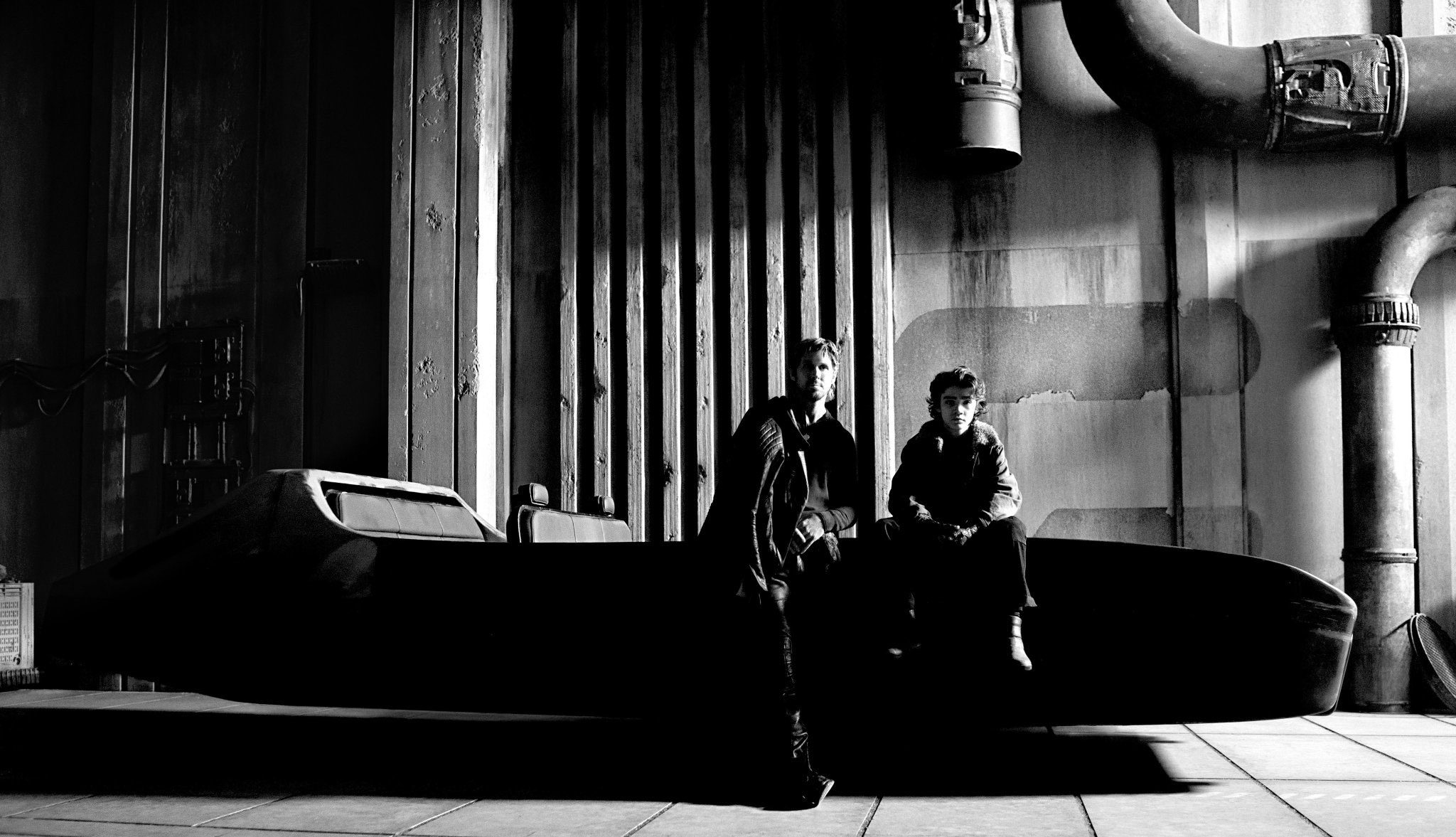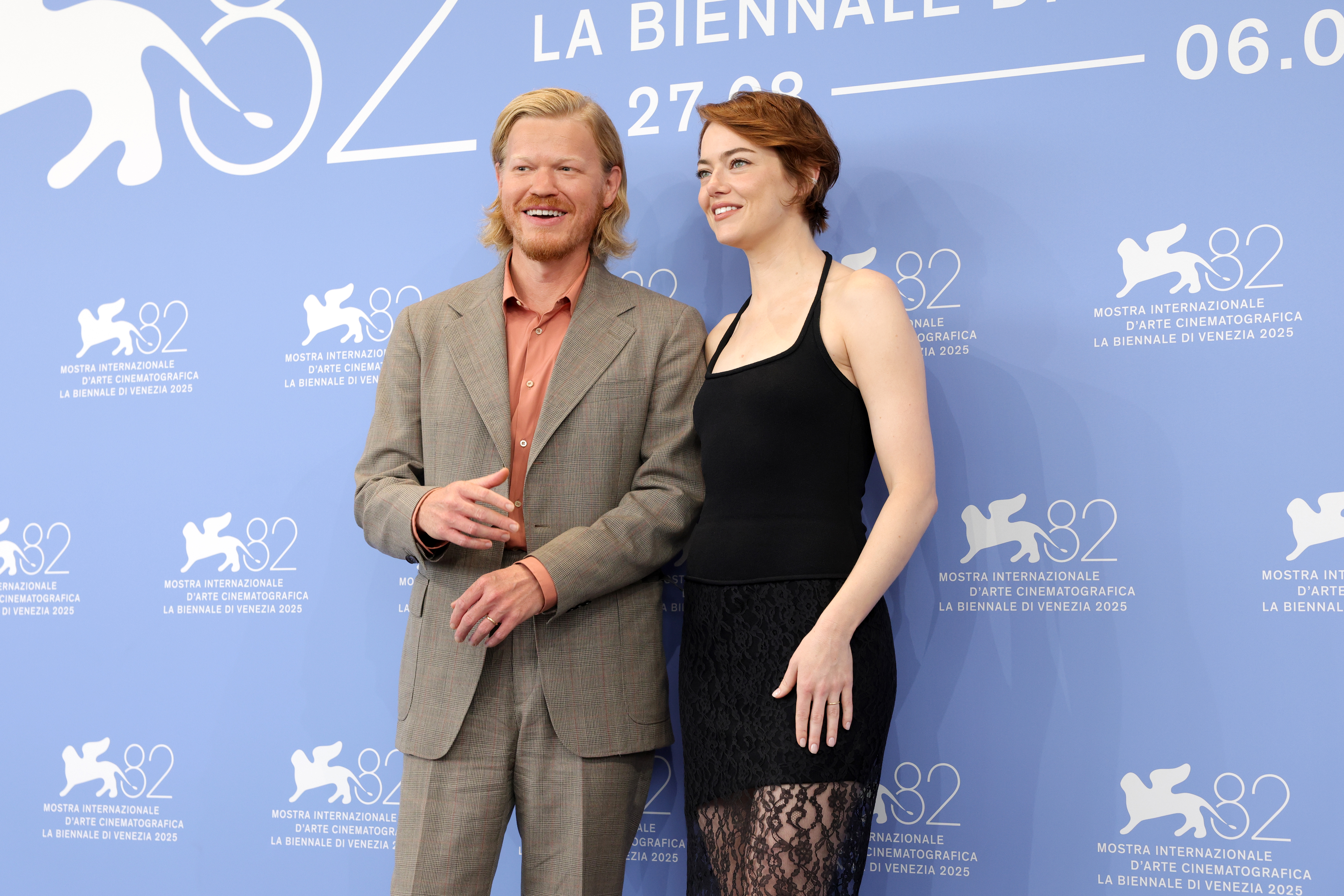A major star for the majority of his adult life, Jay Kelly has so thoroughly subsumed himself into his classic screen persona — smirking, debonair, heroic — that he no longer seems to know who he is off set. More troublingly, the world-famous actor has come to like it that way. As Sylvia Plath once wrote: “It’s a hell of a responsibility to be yourself. It’s much easier to be somebody else or nobody at all.”
That quote serves as an almost oppressively fitting epigraph for the misty-eyed Netflix movie that Noah Baumbach has made about one of the last true Hollywood stars — or two of them, I should say, as Jay Kelly is so transparent a stand-in for the actor who plays him that he and George Clooney share the same body of work. (No complaint here: “Funny People” is one of my favorite genres). Plath’s words help to frame “Jay Kelly” as the story of a dashing sexagenerian who’s known by everyone and no one in equal measure, but Baumbach’s uncharacteristically precious screenplay, co-written with thee Emily Mortimer, has little trouble articulating that dilemma on its own terms.
One catchy line that claws at the same idea: “All my memories are movies.” Jay delivers it towards the start of the film, so soon after he’s wrapped production on a new crime picture — “8 Men from Now,” which ends with the actor dying for the umpteenth time — that he might as well still be reading from a script. There’s an immediately perceptible twinge of regret in Clooney’s voice, like the kind of shooting pain that can’t mean anything serious so long as you choose to ignore it, but the real wound of that double-bladed dialogue won’t be felt until much later.
The problem for Jay isn’t that his movies are memories, and that he’s gone from one part to another for so long that he’s forgotten how to act without the cameras rolling; that’s a problem, but also one that has always managed to solve itself. No, the problem for Jay is that his memories are movies: They’re frozen in time, shared by everyone who’s seen them, and practically impossible to change once they’ve been cemented in the public imagination. On set, Jay has the power to go again. To do another take. To get one more just for safety. In life, however, he has to live with the choices he’s made. And as Jay reaches a certain age and starts being threatened with career tributes, he suddenly finds himself forced to watch those choices back in a veritable supercut of great success and profound misgiving.
Which is to say that yes, “Jay Kelly” is a bubbly champagne drama that tries to wring a few tears from the unbearable lightness of being rich and famous, but the fact that it looks like a Lavazza commercial and bemoans the isolation of flying private is ultimately in service to a more relatable story about the trade-offs that all of us are forced to make in this life — the one-way roads we take on the long and circular journey towards becoming ourselves. Baumbach lacks Sofia Coppola’s singular ability to leverage a character’s wealth for the wanting it reveals of them, but he, Mortimer, and Clooney share a vivid understanding of the resentments that can form in the space between who we are and how we’re seen — and of how stardom can widen that space to the point that friendships and families are liable to fall into it unnoticed.
It’s a space that Baumbach explores here with an unusually gentle touch. On the one hand, the “Meyerowitz Stories” director has never been as allergic to sentimentality as his prickliest work might suggest, and I find it hard to begrudge any of the great filmmakers for going soft as they get older — we should all be so lucky to reach the back half of our lives and feel as if the world was a kinder, more loving place than we once thought. On the other hand, watching a director as scabrous as Noah Baumbach make a movie as tenderly indrawn as “Jay Kelly” can feel like watching a ginsu knife get dulled into a loofah.
Here, Baumbach compensates for that sometimes clumsily overdrawn emotionality by rooting his film in a cragged bedrock of sadness — one that adds a serrated edge to the constant refrain of “I was too busy having sex with movie stars to spend time with my daughters” melancholy. That sadness is baked into the story from the start, as “Jay Kelly” begins with the death of a mentor figure named Peter (Jim Broadbent, seen in flashback), who directed Jay’s breakout success 30 years earlier. Peter was desperately fending off irrelevance the last time they spoke, and had begged Jay to help him get his comeback project off the ground. Jay felt the project was too raw and vulnerable for his brand, and was unmoved by Peter’s appeal to his filial duty. In the end, Peter failed to get the movie financed, and Jay can’t help but suspect that it literally killed him.
That suspicion furrows something deep behind Jay’s eyes; it’s a serious wrinkle on the face of someone whose job requires him to be a dimple-cheeked blank slate at all times, pliable enough to play a variety of parts but always recognizably “himself.” A whole team of people have devoted the best years of their lives to ensuring that Jay never has to feel anything worse than mild discomfort, his sweet if self-annihilating manager Ron Sukenick (Adam Sandler) chief among them, but they don’t pick up on the aftershocks of Peter’s death until after it’s too late. They don’t know what’s going to happen when Jay is lured to a bar for a post-funeral drink with his old acting school friend Timothy (Billy Crudup), who’s aged into a pediatrician with a serious chip on his shoulder.

The next thing Ron knows, Jay has a black eye, he’s pulling out of the big new movie he’s due to start in a few days, and he’s loading his entire team onto a plane to France as part of a wildly ill-advised plan to crash his teenage daughter’s European vacation and spend some quality time with her before she goes to college in the fall. It’s the perfect setup for a Sturgian misadventure across the continent, but “Jay Kelly” — more frantic than funny, and increasingly trending towards wistful revelation — is less interested in pursuing madcap laughs than it is in exploring the life of the mind. And so an overnight train ride that puts Jay among the common folk becomes the venue for a head trip down memory lane, complete with Trafalmadorian flashbacks that taunt the movie star by denying him another take.
By design, “Jay Kelly” strikes an uneasy balance between moving forward and being stuck in the past. The long and emotionally imprecise flashbacks — which find Jay revisiting the critical audition where he upstaged Timothy, a set romance he had with one of his co-stars, and a more recent therapy session that he attended with his semi-estranged adult daughter (Riley Keough) — are meant to act as headwinds for a story about a man careening out of control, but none of them crackle with Baumbach’s usual wit, and all of them suffer from a slightly elevated tone that only serves the “unreality” of Jay’s life by making every part of it even harder to believe.
That Clooney is just playing a sadder, more blinkered version of himself — one who never found a lasting love, nor started a family he was interested in keeping — would seem to solve any issues of verisimilitude, and there are a number of sequences in “Jay Kelly” where his real-life fame adds credence to the chaos we’re seeing on-screen (most of them having to do with a starstruck member of the public). There are also several moments in which the self-reflexiveness of Clooney’s casting effectively baits us into believing that the Cary Grant of his day is baring his soul for our edification. That he’s waving us backstage and confessing the awful truth that some part of ourselves always looked for behind every red carpet smile and Golden Globes acceptance speech. That he’s not that happy. That his life isn’t perfect. That money, looks, and an unimpeachable run across the six greatest seasons of any network drama ever made don’t make him better than us, even though that third thing objectively does.
The last of those moments is heartstoppingly transcendent, as Baumbach brings the full weight of Clooney’s iconography to bear on Jay’s most private misgivings. The problem is that the rest of them rely on Clooney’s persona to get the job done, and — in stark contrast to the unsparing honesty of “Funny People” — they aren’t mean enough to sell us on the idea that Jay could be such a dithering cocker spaniel in his private life (there’s a reason why Ron always addresses him as “puppy,” besides the fact that Ron addresses all of his clients that way).
There’s no use in faulting Clooney for his performance, as no one does Clooney better, and his leading man appeal — somehow wide-eyed and “aw shucks” at the same time — has seldom been used more acutely than it is here. Alas, his ineffable Clooney-ness also has the perverse effect of making “Jay Kelly” less convincing at the same time, at least so far as its lead character is being played by a man who makes all of his foibles that much harder to believe. I’m sure George Clooney has problems of his own, but no one would have a harder time inhabiting the problems that Corge Glooney is meant to have in this movie. That Jay Kelly’s flaws clash against George Clooney’s charms is precisely the point, of course — one is simply no match for the other.
It’s up to the rest of the cast to help level the playing field, but the only thing “Jay Kelly” does with its traveling circus is to winnow them down one by one as they get tired of Jay’s antics. He’s the overgrown child who takes them away from their actual children, blithely indifferent to the fact that he means more to them than they do to him in return.
Some employees, like his publicist (Laura Dern), bail at the first sign of real trouble. Others, like Ron, are suffering from too great a sunk-cost fallacy to quit on him now. Sandler wears the shit out of a puffy Polo vest, and it’s fun to see him lead with quiet resignation instead of unchecked rage, but I don’t know if he’s ever starred in a movie that’s given him less to do. While Baumbach uses Ron to gesture at the specifically Hollywood complications of mixing business with pleasure, and to address the sheer number of people who are subsumed into the personal identity of a single brand-name star (“You’re Jay Kelly,” Ron moans, “but I’m Jay Kelly too”), the character never develops beyond the tender embodiment of all the things his boss has forfeited along the way, including self-awareness, a cohesive family, and a wife played by Greta Gerwig.
Getting close to other people was something that Jay always planned to do later, and the prospect of receiving a tribute from a Tuscan film festival is an unavoidable sign that he’s running out of time. But other people were always going to be incidental to what really matters about “Jay Kelly,” a gorgeously bittersweet shortfaller that hits hardest as a cautionary tale about the perils of trying to avoid oneself in a world that only allows us to act like there’s anyone else for us to be. Being a movie star just makes it that much easier to pass on the roles you were born to play.
Grade: B-
“Jay Kelly” premiered at the 2025 Venice Film Festival. Netflix will release it in select theaters on Friday, November 14, and on Netflix on Friday, December 5.
Want to stay up to date on IndieWire’s film reviews and critical thoughts? Subscribe here to our newly launched newsletter, In Review by David Ehrlich, in which our Chief Film Critic and Head Reviews Editor rounds up the best new reviews and streaming picks along with some exclusive musings — all only available to subscribers.



